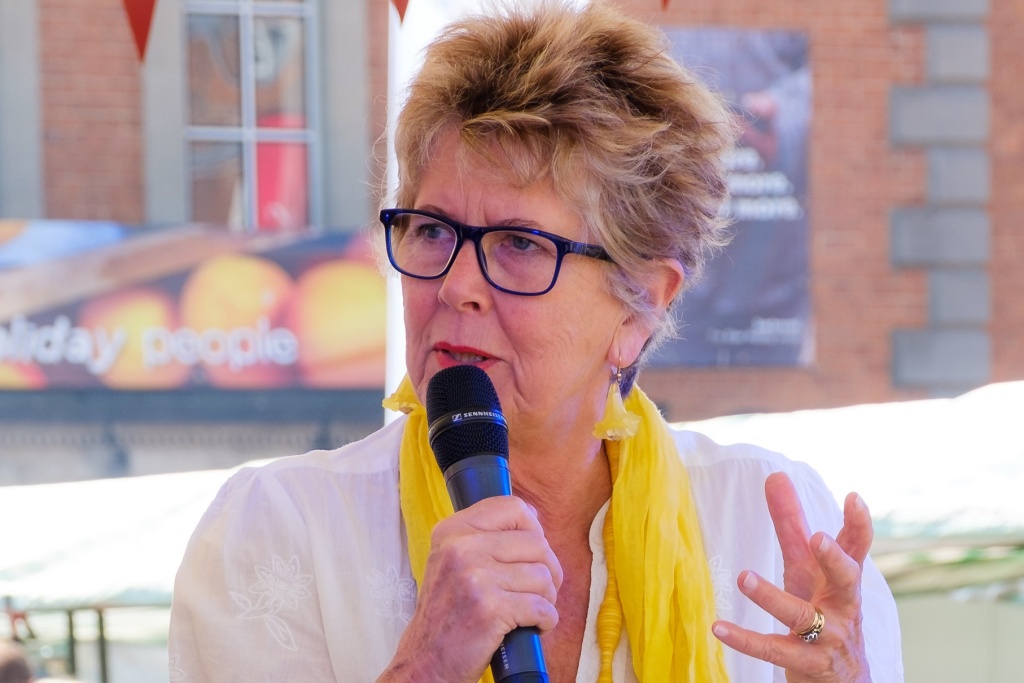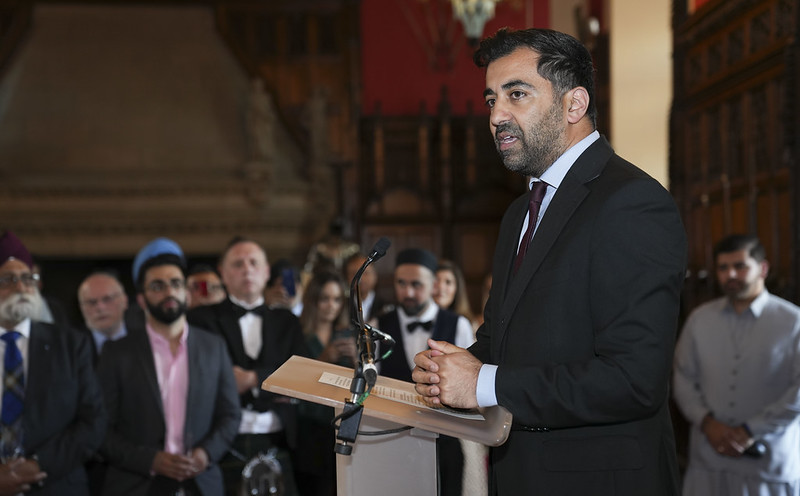FOR IMMEDIATE RELEASE
ASSISTED SUICIDE: MSPs URGED TO TREAT VIEWS OF CANADIAN DOCTOR WITH CAUTION
MSPs have been urged to treat with caution the views of a Canadian doctor who has flown to Scotland to back proposals for assisted suicide legislation.
Medical experts campaigning against the Bill, which is expected to go before the Scottish Parliament shortly, expressed their concerns as Dr James Downar attended a meeting of MSPs on Tuesday evening (Tue Sept 19) called by Lib Dem Liam McArthur who is sponsoring the planned law.
In Canada, assisted suicide has been legalised and is known as Medical Assistance in Dying (MAiD). Palliative care physician and researcher Downar is the former chair of the physicians advisory board for Dying with Dignity and one of the main MAiD physician expansionists and lobbyists.
But Scots medics from the Our Duty of Care (ODOC), who oppose the Bill, have been disturbed by the Canadian experience and the speed with which the law was expanded to include non-terminal illness and how quickly the number of MAiD deaths increased to over 10,000 per annum in just six years.
ODOC spokesperson Dr Gillian Wright, a palliative care specialist, said:
"Since the Bill being proposed by Liam McArthur is similar in scope, with no prognostication of death being required and refusal of treatment being included, we are right to raise concerns.
"Canada introduced Medically Assistance in Dying in 2016 for the terminally ill. The legislation was claimed by its proponents to have safeguards but these quickly fell with increasing cases emerging of poor, vulnerable and disabled people being offered MAiD rather healthcare or support to live. From March next year, people who are mentally ill, with no physical ailments, will also be able to request MAiD legally in Canada.
"We are not scaremongering what might happen in Scotland if this legislation is introduced here, we share concerns with bodies like the UN."
She added:
"Canada is a helpful model for MSPs to look at because it has a similar kind of public health system to our NHS. With Canada, unlike countries like Australia and New Zealand, they have had it running for seven years now, which is long enough for some of the problems with assisted suicide and euthanasia to become apparent.
"Dr Downar's research only covered the first two years of operation of MAiD, (between June 7, 2016, and Oct. 31, 2018) so it might be more beneficial for MSPs to explore all the issues that surfaced since the law was expanded in years 3-7 so they gain a more comprehensive understanding of the deep problems it is creating in the health service and for other vulnerable groups in society.
"ODOC is encouraging MSPs to consider a more thorough analysis of the Canadian system so they can understand how their safeguards collapsed, and the system was extended and expanded beyond terminal illnesses to include chronic conditions and mental health issues. And why poverty, not pain and lack of support services are now driving some Canadians to seek an assisted death as a way to escape the social conditions. When the Canadian minister for disability and inclusion says that it's now easier to apply for euthanasia than it is to get a wheelchair, then you know priorities have gone awry. It doesn't have to be that way in Scotland. That's why ODOC is calling for a proper inquiry into Canada before any legislation is even introduced at Holyrood."
Dr Wright said that on 12 April 2019, the United Nations Special Rapporteur on the Rights of Persons with Disabilities issued an End of Mission Statement regarding Canada's treatment of its disabled citizens. In respect of Canada's euthanasia law, she reported:
'I am extremely concerned about the implementation of the legislation on medical assistance in dying from a disability perspective. I have been informed that there is no protocol in place to demonstrate that persons with disabilities have been provided with viable alternatives when eligible for assistive dying. I have further received worrisome claims about persons with disabilities in institutions being pressured to seek medical assistance in dying, and practitioners not formally reporting cases involving persons with disabilities. I urge the federal government to investigate these complaints and put into place adequate safeguards to ensure that persons with disabilities do not request assistive dying simply because of the absence of community-based alternatives and palliative care'.
Dr Wright concluded:
"We have significant lessons to learn from Canada. We welcome clinicians coming to Scotland to tell us about their experiences and in February another Canadian palliative care expert, Dr Leonie Herx, spoke to MSPs about her experiences. She told them 'risks to the vulnerable are very real and seen internationally. We have to ask what type of society do we want to live in - one that cares for the vulnerable or suggests that they are better off dead'."
Issued by: Tom Hamilton Communications
BACKGROUND ON CANADA
Since MAID was introduced in 2016, MAID deaths in Canada have grown exponentially:
MAiD accounted for 3.3% of ALL deaths in Canada in 2021 (up from 2.4% in the previous year) and reached a total of 10,064 (compared to 1,018 in 2016).
Based on initial published data from some Canadian provinces, Alex Schadenberg, from the Euthanasia Prevention Coalition, estimates that in 2022 the number of MAiD deaths in Canada will have jumped by 35% to 13,500. The rate is likely to increase by a similar percentage in 2023.
Stories about vulnerable Canadians being pressured into requesting MAID for treatable and non-medical conditions are appearing in the press with alarming frequency.
In June, Kathrin Mentler, 37, who has chronic depression and suicidality, was offered euthanasia by a Vancouver hospital clinician who told her the health care system is "broken" and there would be a long wait to see a psychiatrist.
Last December, Christine Gauthier, a 53-year-old retired Canadian army colonel and Paralympian, testified before a government committee that her request for a wheelchair lift to be installed in her home had been met with an offer of euthanasia.
In July, Lisa Pauli, a 47-year-old with anorexia, told Reuters that she would apply for MAID in March next year (2024) when its qualifying criteria are expected to be expanded to include those solely suffering from mental health conditions.
Expanding MAID access to people with mental health conditions could potentially open up medicalised killing to many more Canadians each year.
According to Canada's Centre for Addiction and Mental Health (CAMH) prevalence of mental health illness among Canadians in any given year affects 1-in-5 people.
Official Canadian government data states that 1-in-3 Canadians (or around 13million people) will experience mental illness at some point during their lives.
That's a far cry from the estimated 243,000 Canadians who die each year, of chronic illnesses, such as cancer, heart disease, organ failure and dementia, and who may have qualified for assisted suicide/euthanasia under the limited terminal illness (reasonably foreseeable death) criteria envisaged when the law changed in 2016.








